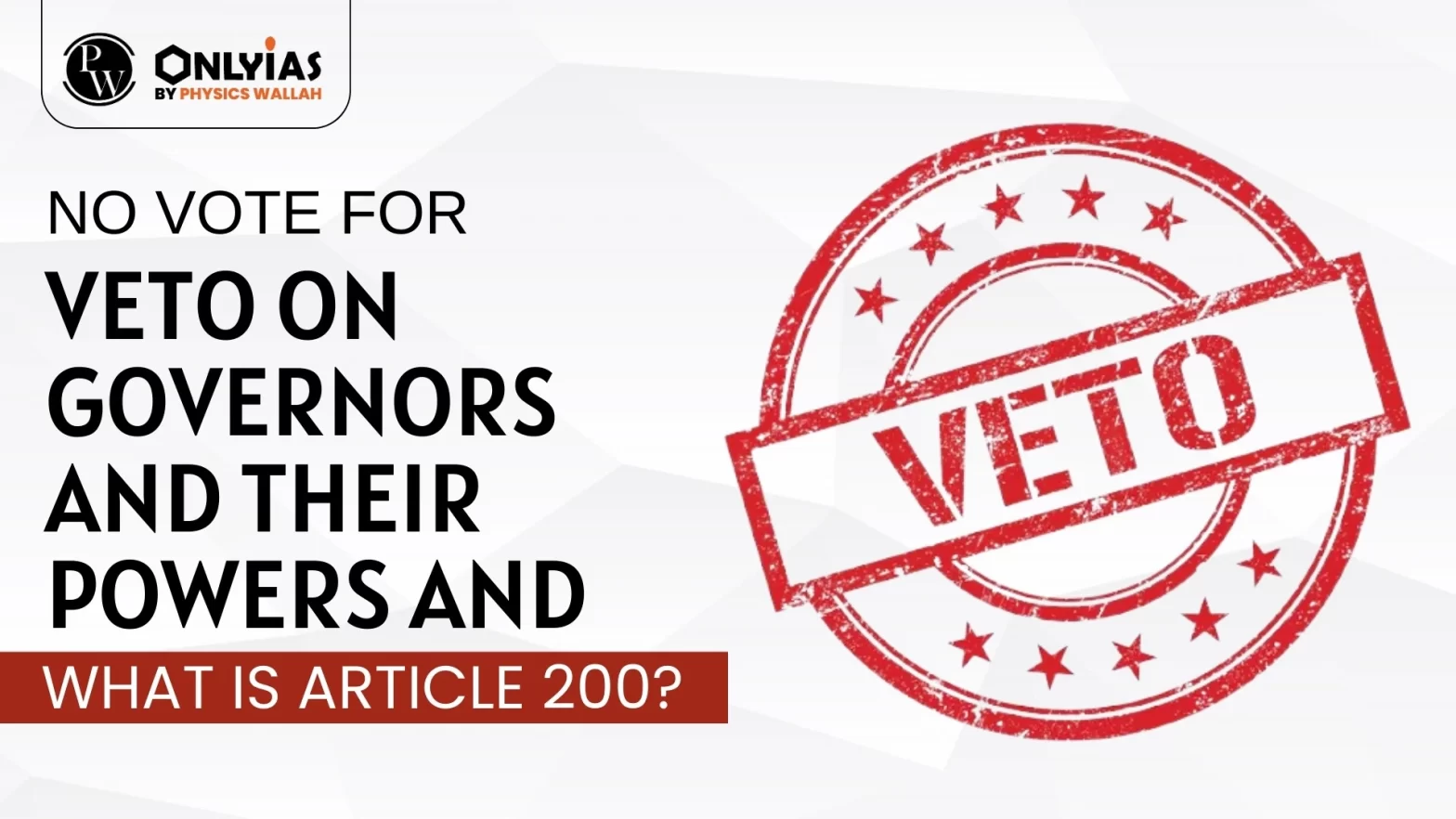Context:
- This article is based on an Editorial “No vote for veto: On Governors and their powers” which was published in the Hindu. In a recent case from Punjab, the Supreme Court clarified that in a parliamentary democracy, Governors do not have a unilateral veto over Bills passed by the legislature.
| Relevancy for Prelims: Article 200 of the Constitution and Provisions of passing various kinds of Bills.
Relevancy for Mains: Issues and Challenges with the Role of Governor. |
Governors and their Powers over State Bills – Article 200
- Article 200 of the Constitution: It deals with grant of assent to Bills.
- Provisions Available: Granting the assent, withholding assent, or reserving a Bill for the President’s consideration.
- There is a provision to the Article which states that “as soon as possible”, the Governor may return the Bill (if it is not a Money Bill) to the House for reconsideration,
- Mandatory to Give Assent: When the Bill is passed again, with or without changes, by the legislature, the Governor cannot withhold assent.
Supreme Court’s Recent Judgment on Governor Powers
- Filling the Loophole of Delay: The Supreme Court read the power to withhold assent and the proviso in conjunction, holding that whenever the Governor withholds assent, he/she has to send the Bill back to the legislature for reconsideration.
- This effectively means that the Governor either grants assent in the first instance or will be compelled to do so after the Bill’s second passage.
- Significance of the Judgment: A clear judgment for Governors on the endless delay of legislative proposals due to the absence of a prescribed time frame.
- Clear the essence of Constitutional Provisions in more Clearer Words: In India, the Governor requires to function mainly on the aid and advice of the Council of Ministers, cannot withhold action on Bills, and must act as soon as possible.
Also Read: States in Supreme Court against their Governors – Delay in Signing Crucial Bills
Conclusion:
While a clear message has been given for taking action on the bill by the Governors, there is still some residual scope for controversy if they start referring Bills they disapprove of to the President. A judgment by the judiciary and action by the legislature is also required to not allow such an eventuality.
| Prelims Question (2014)
Which of the following are the discretionary powers given to the Governor of a State?
1. Sending a report to the President of India for imposing the President’s rule
2. Appointing the Ministers
3. Reserving certain bills passed by the State Legislature for consideration of the President of India
4. Making the rules to conduct the business of the State Government Select the correct answer using the code given below:
(a) 1 and 2 only
(b) 1 and 3 only
(c) 2, 3 and 4 only
(d) 1, 2, 3 and 4
Ans: (b) |
![]() 25 Nov 2023
25 Nov 2023
